
The goal of the LER Accelerator coalition and for the release of its recent white paper is to be a catalyst for faster growth of the adoption of learning and employment records.

The employer winner of the 2025 NACE Technology Excellence Award, GM Financial's intern social media strategy tells the authentic story of the firm’s intern experience and grows its pipeline of students for internships and early career opportunities.

The small employer winner of the 2025 NACE Recruiting Excellence Award, heritage Moss Adams’ (now Baker Tilly) Summer Internship Experience is designed to build a strong pipeline of skilled career professionals who will elevate the profession and the firm.

In positive news for the Class of 2026, nearly 87% of employers responding to NACE’s Job Outlook 2025 Spring Update survey said their organization will be actively recruiting for both full-time and internship positions in fall of 2025.

There has been much discussion about whether a degree is necessary for every job. The answer is “no.” About half of employers responding to NACE’s Job Outlook 2025 Spring Update survey said their organization has positions that are flexible in terms of degree.

Research conducted by Mary Scott shows candidates’ increasing “lack of enthusiasm” about employer use of AI as a screening tool.

What do Class of 2025 college graduates want most in a job? According to NACE’s annual student survey, they are looking for stability. They also would like a healthy workplace culture and friendly coworkers.

Almost two-thirds of employers responding to NACE’s Job Outlook 2025 Spring Update survey reported using skills-based hiring to help them identify candidates with potential.

The traditional office visit has evolved into an opportunity for an organization to give job candidates a glimpse into its culture and a vision for the candidates’ career there.

Although overall hiring projections are up just 0.6% from last year, nearly 90% of employers anticipate increasing or maintaining hiring for the college Class of 2025, according to NACE’s Job Outlook 2025 Spring Update.

NACE surveyed early career talent—those who graduated in 2021, 2022, and 2023—to determine if (and how) experiential learning impacted their careers once they had graduated and landed in their first job. The results showed that those who took part in experiential learning while in college had higher rates of career satisfaction and a higher average salary than those who did not engage in experiential learning.

Moving to skills-based hiring opens opportunity for a broader demographic of students to access positions where they otherwise would not meet the qualifications. Many employers include skills development in their internship programs to enhance their interns’ career readiness and bolster conversion.

In the second of a two-part series, 13 NACE leaders offer their insight and guidance about what they have learned in their time in the profession.

To persist toward successful conversion of interns, organizations must not view engagement as a 10-week summer pursuit. Instead, engagement must gain momentum through recruiting and pre-internship, accelerate during the internship itself, and be maintained after interns return to campus.

Understanding the experiences, preferences, and goals of the early career Gen Z professional will help employers craft meaningful experiences that will ultimately enhance productivity and retention, while career centers will be able to better guide their students.

The goal for employers should be to keep autistic employees from “hire to retire,” which is the ability to sustain these employees by providing them with the support they need to build their career in an organization.

By measuring employment brand strength, companies can identify areas to improve their employer brand, pinpoint strengths to leverage, and assess the effectiveness of their recruitment strategies, ultimately aiming to attract the best candidates and reduce hiring costs.

When recruiting and hiring students with autism, it’s important for employers to train hiring managers so they understand how the hiring process might look different and adjust their criteria on how they evaluate candidates.

Over the past five years—and maybe because they weathered the pandemic and got a giant taste of how quickly things can change—new grads’ wish list has largely reflected one thing: their desire for security.

When students responding to NACE’s 2024 Student Survey were asked to identify the obstacles preventing them from participating in internships, their responses revealed they attributed their decision to a lack of time, concerns over pay, and scant opportunities.

The most prominent elements of a successful partnership between an HBCU and an employer are gaining understanding of challenges, demands, and goals and changing behaviors.

There are several factors linked to the decision to convert for Class of 2024 graduating seniors, according to results of NACE’s 2024 Student Survey.

There is a clear and persistent disconnect between how students and employers perceive students’ development of the competencies they need to be career ready as they enter the workforce.

In the first of a two-part series, 13 NACE leaders offer their insight and guidance about what they have learned in their time in the profession.

Hyster-Yale Materials Handling is developing a pre-onboarding program to engage and build excitement among its interns prior to their start date next summer.

As a job candidate, students should pursue openings where their skills match the company’s needs, and by dissecting a job description and ensuring those key words find their way into their resume, students can stand out during the screening process.

Close to two-thirds of employers responding to the Job Outlook 2025 survey reported that they use skills-based hiring practices for new entry-level hires, and more than half use these practices always or most of the time in their hiring process.

Hiring for the college Class of 2025 is expected to increase 7.3% over hiring for the Class of 2024, according to NACE’s Job Outlook 2025 survey.

Disney provides resources to the College Fund to administer the latter’s scholarship program, called the Future Native Storytellers Program. Recently, a smaller group of program scholars was selected to receive additional enhancements to increase the awareness of opportunities at Disney for Native students.

This past summer, Arup expanded its career readiness programming for summer interns by working with its internal learning and development team to implement a series of competency-focused workshops.

The political and social unrest seen on college campuses last spring and that may potentially reignite this fall has little impact on college recruiting, according to results of a recent NACE quick poll.

Global Atlantic Financial Group, the small employer winner of the 2024 NACE Recruiting Excellence Award, addressed a pressing need for increased diversity and innovation and a robust talent pipeline.

NACE is conducting a quick poll and would like your input to assess ways that campus recruiting may be impacted. Last spring, we saw increased campus protests and lockdowns in response to student activism. As we prepare for the fall semester and campus recruiting, there is a potential for increased campus unrest in response to global and national events (i.e. Presidential election, war in Middle East). This Quick Poll is intended to get an overall understanding of the ways university recruiters and campus career centers are preparing for possible campus unrest related to the recruiting process.

The employer winner of the 2024 NACE Technology Excellence Award, Freese and Nichols implemented talent acquisition platform Yello and modified its roles and processes related to its on-campus career fair strategy to significantly increase its university hiring.

Providing a candidate experience that meets—or better yet, exceeds—students’ expectations is the “secret sauce” that drives successful results.

Belonging at work—feeling that one is valued, accepted, and supported—helps to ensure a healthy, productive, and positive work environment. NACE surveyed its membership to better understand their experiences with belonging in the profession.

Recent data reveal that systemic barriers continue to limit progress on achieving pay equity for all—yet there are tangible, proven ways that career centers and employers can make an impact.

Recruiters who foster a sense of belonging among potential hires have a positive impact on the candidate’s view of the organization.

Consultant Katie Donovan offers tips for employers to eliminate the main causes of pay inequity for women, including that women are underpaid doing the same jobs as men and are underrepresented in leadership roles.

Hourly wages for interns have kept pace with inflation, signaling the value of these programs to employers.

Women remain underrepresented in computer science majors and careers. Two researchers conducted a study to see how women in computing experience and make sense of their internships, and how their internship experiences shape their future career plans.

Although new college graduates looking to enter the workforce and employers hiring these graduates agree on which competencies are most important for job candidates to hone, their perception of student proficiency in them differs.
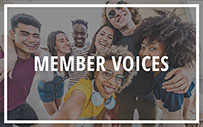
As Gen Z enters the workforce, there will be a shift in workplace culture and expectations, and employers who have embraced these changes have an advantage are positioned for success.

To foster a truly diverse and inclusive workplace, employers should expand their DEI efforts to encompass what is increasingly being referred to as DEIA—or diversity, equity, inclusion, and accessibility.

Mary Scott compared data from 2016 to that from 2022 to gauge students’ assessment that an employer “made it seem as though they were interested in me.” What she found was astonishing.
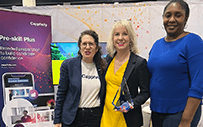
In 2022, Cappfinity partnered with EY’s UK student recruitment team to deliver an immersive, inclusive, and differentiated approach to early careers recruiting, creating VR for intern attraction and development.

Automated video interviews (AVIs) are an emerging recruitment tool. As success factors in AVIs may differ from face-to-face interviews, it is important for career services practitioners to know how to help their students prepare for these new types of interviews.

As we enter the new school and recruiting season, NACE is conducting a Fall Quick Poll. The focus of our poll is on two important issues– the impact the end of Affirmative Action is having on our work and state of unpaid internships.

Many URR and career services functions are using artificial intelligence (AI) to streamline their processes and enhance their operations. However, there are potential legal risks adopters should consider as they move from dipping their toes into the AI pool to fully diving in.

As we head into the warm days of the summer, the Class of 2023 is getting ready to make their mark on their first career destinations. They are starting careers in a world that is trying to emerge from a global pandemic but one that continues to grapple with social justice and equity.

Some of the rewarding aspects of being a URR professional include changing people’s lives and providing a seat at the table for many who may not have been historically represented.

Mohawk Industries believes it has a responsibility to do what it can to support the transition of students to the workplace, which is just one of the reasons its ASPIRE program is so important.

In a unique interview with ChatGPT, NACE asks the AI language model how it feels about its use as a tool in the job search, career readiness, and talent acquisition; the ethics of its use; and more.

What are some key considerations and steps for employers to take to create long-lasting, mutually beneficial partnerships with HBCUs and PBIs?

This gain underscores the value employers place on their internship programs and their commitment to them.
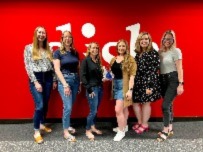
The large-employer winner of the 2023 NACE Award for Recruiting Excellence, DISH’s “Recruit Once, Hire Twice” college recruiting process brings in top interns and works to convert them into full-time hires.

NACE has conducted research that identifies important trends and unearths key insights that can help members enhance or adjust their operations to meet challenges and demands.

Interviews with diversity, talent, and industry experts revealed confusion, conflation, and a general lack of conceptual clarity around fundamental differences in DEI& B in their organizations.

Among the key information recruiters need to know to successfully navigate their careers is to stay informed and value relationships.

Slightly more than 85% of employers reported having formal diversity recruiting goals, according to NACE’s 2022 Recruiting Benchmarks Report, but how effective are these efforts?

Research conducted by NACE and The Center for the Study of HBCUs underscores how important it is for companies to conduct audits to assess gaps and inequities in their recruiting efforts.
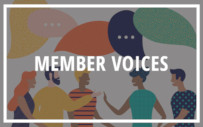
Over the summer, NACE conducted a Quick Poll to learn about fall recruiting plans, and the findings seemed to indicate that most activities would mostly return to in-person. Employers expected to spend about 70% of their time recruiting in person and 80% of career centers were planning for in-person career fairs. However, even with a return to in-person events, both employers and colleges still had to adjust their standard procedures because of the ongoing risk posed by the pandemic.

The amount of time for students participating in a job interview to receiving an offer has increased over the past several years, but the time they take to accept the offer dropped in 2022.

Chelsea C. Williams, founder and CEO of Reimagine Talent Co., defines “belonging” as a feeling that people have when they are seen, valued, protected, and respected. “While, ultimately, individuals determine and define their sense of belonging, I do believe there are steps we can take to build for belonging,” Williams adds.

When employers consider skills and practice skills-based hiring and skills-based networking, they bring in a more diverse slate of candidates from non-traditional backgrounds, says Asha Aravindakshan.
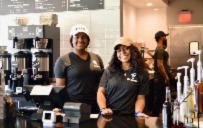
Through its Experiential Learning Platform™, Saxbys builds individualized academic partnerships to open cafes that provide exceptional paid experiential learning opportunities for students.

Employers are strongly committed to in-person college recruiting activities this fall as they are largely unencumbered by travel restrictions that organizations imposed during the COVID-19 pandemic, according to results of NACE’s Quick Poll on Fall Recruiting and Career Services.

Diversity and inclusion have traditionally been about race and about sex, but we are all so much more than just what is visible, explains author, speaker, and social impact adviser Michele Sullivan.

There are key steps that employers and colleges can take to ensure that their culture is inclusive, such as providing training, planning intentionally, and holding employees accountable, says MarTeze Hammonds, Ed.D.

College graduates in their early professional careers report significant mental health issues and view their jobs as a contributing factor. How can employers and colleges provide support?

The percent of interviews resulting in a job offer has climbed to its highest level of the past five years, but acceptances and retention rates for the first three years of employment fell.

Beyond ensuring diversity in the composition of their intern cohort, employers’ ability to convert their interns into full-time hires is a critical component to diversifying their workforce.

When it comes to the development of college students’ career readiness, industry should be complementary to and support career services professionals and faculty, explain Liz Moran and Lynn Letukas of SAS.

Liberty Mutual takes a very targeted approach to the sources of talent they try to attract, engage, and hire. This extends far beyond a traditional target school list.

In terms of their career interests and goals, members of Generation Z have an increased appetite for and awareness of entrepreneurship.

NACE Brief: Understanding the Experiences and Attitudes of LGBTQ+ Students is free to NACE members. There are important—and troublesome—differences in pay, sense of belonging, and job offers that LGBTQ+ students experience during internships that impact their experience in the job search and employment, according to NACE’s newly released brief titled Understanding the Experiences and Attitudes of LGBTQ+ Students.

After witnessing the impact that the pandemic had on early undergraduate students from underrepresented groups in the tech industry, IBM scaled up its early talent ID program.

To facilitate planning and benchmarking for both employers and career centers, the National Association of Colleges and Employers (NACE) is conducting a quick poll that looks at fall recruiting as well as how career services offerings will be delivered.

Employers overwhelmingly believe hosting internships is the recruiting strategy that yields the highest return on investment leading to entry-level hires.

Protiviti has long felt that setting up its interns for success from the moment they first power on their laptop during the summer session is integral. When Protiviti switched to a virtual onboarding model for its interns in 2020, it realized there was more that could be accomplished in the virtual setting with intentional planning.
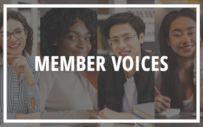
Many emerging professionals are turning to community colleges, vocational schools, and technical bootcamps to gain marketable skills.

Launched in 2018 with a flagship two-day immersive conference, Workday’s “Future Females in Tech Engagement Program” helps women to build career confidence and make the connections they need to get started in the tech industry.

The average number of full-time URR staff members that organizations employ decreased to 13.5 from 14.3 last year.

The M&T Bank talent acquisition unit’s partnerships with employee resource groups (ERGs) has yielded a range of benefits, such as helping to identify internal talent, providing training opportunities, improving engagement across the organization, and boosting retention.
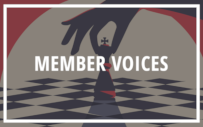
When a candidate is put in a situation to name a salary or negotiate a salary provided by the employer, the candidate is not being paid based on their merit and skills but rather on how well they handle a negotiation discussion.

Two critical factors for limiting bias in AI systems are building diverse AI teams and implementing an enterprise-wide trustworthy AI framework.

Uncertainty surrounds the use of artificial intelligence among university relations and recruiting professionals and, to a lesser extent, among career services practitioners.

There are several research-based practices employers can implement to achieve greater success in recruiting and developing interns from HBCUs and PBIs.

What, if anything, do you give your interns to welcome them to their internship or help them remember their intern experience?

Providing impactful professional development opportunities for interns can have positive implications for organizations.

Does your organization run a background check immediately after making an offer or closer to the new hire’s start date? URR professionals in the NACE Community share their approaches.

Visibility and the tiering of school partnerships are two of the challenges Historically Black Colleges and Universities face in attracting employers to recruit their students.

Many businesses and organizations are unclear about their ability to hire DREAMers who have DACA or TPS. In fact, employers are able to hire a DREAMer just as they would a U.S. citizen.

Offering regular activities keeps interns engaged with the organization, which is crucial, especially in a virtual environment.

Building trust with TCUs and Native students and bridging gaps in areas of need will aid employers in their recruitment efforts.

Employers that hire student veterans have the benefit of hiring employees who have already received “the world’s best leadership training.”

During the pandemic, only 22% of college students took an internship, half were in-person positions, and quality indicators for online internships were low, according to a new study.

When one HBCU career practitioner is building relationships with employers, she is looking for authenticity, a shared sense of purpose, and impactful engagement opportunities for students and the university as a whole.
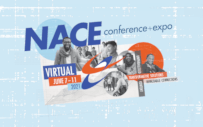
Over the course of the week-long NACE21 conference, it became clear that several topics—such as the new normal, professionalism, and career readiness—weighed most heavily on attendees.

Cultural intelligence may be the most important individual area of change for organizations that want to bolster their recruitment and retention of culturally diverse individuals.

It is important for employers to consider the language they use because language can be loaded and have different meanings for different people.

The biggest challenge with “professionalism” is ensuring that all candidates and employees understand what it means within the context of the organization and their specific job function.

Employers that recruit and hire students with autism can overcome barriers by being proactive in seeking resources and information about this student population.
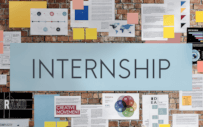
Talent acquisition professionals provide insight and ideas on topics around internships, such as converting interns to FTEs, internship duration, and more.

Instead of pausing its college recruiting operations during the pandemic, NCR shifted its focus from on-campus to on-screen engagement, while always putting the students first.

URR functions and career services operations have received increased funding and resources to address racial injustice and the needs of historically marginalized groups, just at different paces.

In response to the climate of racial injustice, Dell expanded its definition of recent graduate talent to engage underrepresented minorities.

To get the best results when recruiting and hiring neurodiverse candidates, employers need to be flexible, supportive, and willing to make accommodations.

As NI went through increasingly rapid changes due to shifts in the market, it became clear that significant adjustments were needed to its programs and strategies.
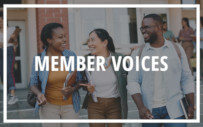
When working with employer partners, career services teams must keep in mind that career centers are not staffing agencies and student needs must come first.
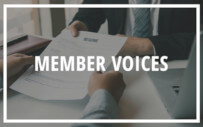
NACE members share their personal thoughts on resume professional summary statements and what information, if any, should be included by students seeking employment after graduation.
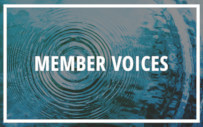
Over the last two years, the nature of employment has shifted, and college career services may need to adjust to more closely align with these changes.

Employee resource groups can be valuable tools for helping employers to bolster their diversity, equity, and inclusion efforts, and to help with effective onboarding and retention.

The State of Georgia’s reverse networking fair offered state agencies the opportunity to promote their career opportunities for college students to career services professionals.
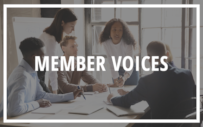
Work-based learning opportunities can be great ways for students with disabilities to gain valuable professional experience while preparing for their postgraduation careers.

New graduates and their potential employers can agree on which skills are most important for job candidates, but differ on how proficient new graduates are in those abilities.

Cigna recently held a virtual event to increase awareness of HBCUs and spotlight the prominence and legacy of HBCUs in the Black community.
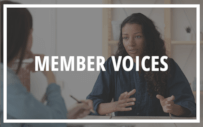
As students prepare their resumes and practice interviews for internships and postgraduation employment, it is important to remember that failures can be as important as successes.

The concept of recognizing feelings as real is a key step in developing emotional intelligence. The risk you run by not doing so is burnout.
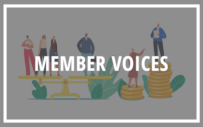
Increasing salary transparency in general and including information on potential payroll deductions can go a long way towards a more equitable work environment.

One of the barriers that prevents more employers from partnering with community colleges is a general lack of understanding about what these schools and their students can provide.

With an eye toward the future of its workforce, Mohawk Industries provides its candidates and new college hires with development that extends beyond the internship.